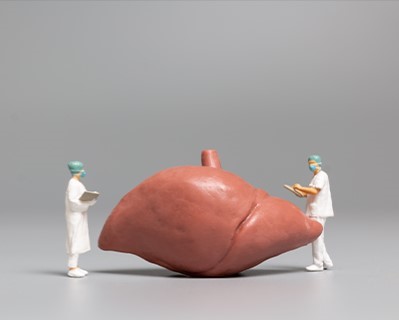Liver Biopsy
- Purpose: Diagnoses liver diseases by examining liver tissue samples.
- Procedure: A needle is inserted through the skin to remove a small piece of liver tissue for analysis.
-
Note: The information provided here applies to elective liver biopsy procedures under standard conditions. However, specifics may vary depending on individual patient factors, such as the presence of liver disease, patient tolerance, or any complications that might arise during or after the procedure. The patient’s overall health, the type of biopsy (percutaneous, transjugular, or laparoscopic), and the need for additional interventions can also influence the procedure and recovery process.
Inpatient/Outpatient
Liver biopsy is typically performed as an outpatient procedure. Depending on the type of biopsy and the patient's overall condition, most patients can return home the same day after a few hours of observation. However, in some cases, particularly if there are concerns about bleeding or if the patient has other underlying conditions, a short hospital stay might be required for closer monitoring.Hospital Stay Duration
Patients undergoing liver biopsy generally do not require an overnight hospital stay, but they are monitored for a few hours after the procedure to ensure there are no immediate complications, such as bleeding or severe pain. The actual procedure takes about 15 to 30 minutes, but the total time spent at the facility may be several hours to allow for preparation, the procedure itself, and recovery.Type of Anesthesia
Liver biopsy is typically performed under local anesthesia, which numbs the area where the biopsy needle will be inserted. In some cases, conscious sedation may be used to help the patient relax. If a transjugular or laparoscopic approach is used, general anesthesia may be required, especially if the procedure is performed in conjunction with other interventions.Travel After Procedure
Patients are generally advised to avoid driving and long-distance travel for at least 24 hours after the procedure, especially if sedation or anesthesia was used. Most patients can resume normal activities the next day, but they should follow specific recommendations from their healthcare provider regarding travel and physical activity.Pre-procedure Preparation
Preparation for a liver biopsy typically involves fasting for 6 to 8 hours before the procedure. Patients may need to stop taking certain medications, particularly blood thinners, a few days before the biopsy to reduce the risk of bleeding. A blood test may be performed before the procedure to check the patient's clotting status. The healthcare provider will provide detailed pre-procedure instructions tailored to the patient’s needs.Procedure Duration
The liver biopsy procedure typically takes about 15 to 30 minutes. The most common approach is percutaneous, where a needle is inserted through the skin into the liver to obtain a tissue sample. Transjugular and laparoscopic biopsies are less common and may take longer, depending on the complexity of the procedure.Recovery Time
Recovery from a liver biopsy is generally quick, with most patients able to return to light activities within 24 hours. However, patients are usually advised to avoid strenuous activities, heavy lifting, and alcohol consumption for several days to minimize the risk of bleeding or other complications. Patients should rest for the remainder of the day after the procedure.Estimated Cost
The cost of a liver biopsy can vary depending on the hospital, geographic location, and the type of biopsy performed. For accurate cost information, patients should contact their healthcare provider or treatment center directly.Post-procedure Care
Post-procedure care for liver biopsy involves monitoring for signs of complications, such as severe pain, bleeding, or signs of infection at the biopsy site. Patients should follow their healthcare provider’s instructions on how to care for the biopsy site and any activity restrictions. Follow-up appointments may be necessary to review the biopsy results and discuss any further treatment if liver disease or other abnormalities were detected.

